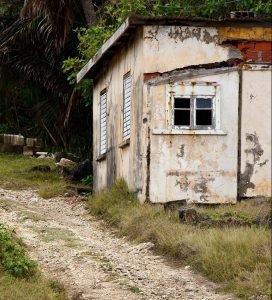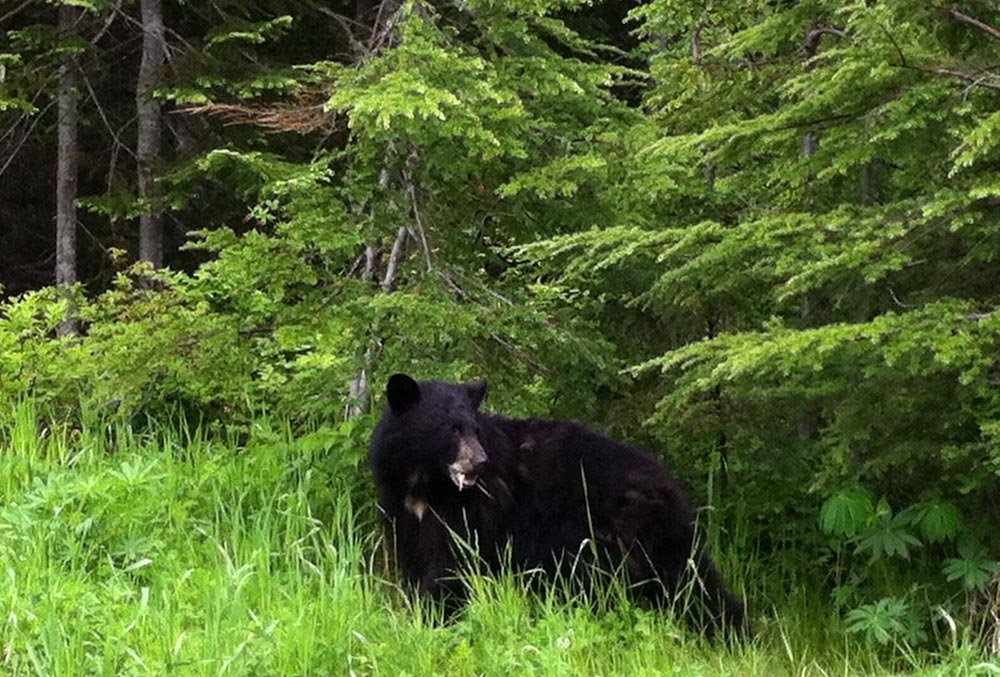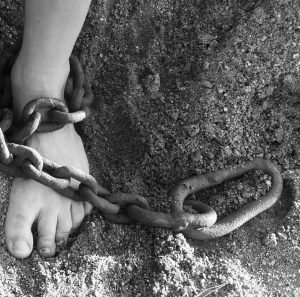Sometimes he dipped his popcorn into his coffee. He only did that when the popcorn was burnt. Today, it was the coffee that was burnt. The popcorn was soggy. But it was breakfast. The same breakfast he had eaten every day for most of his adult life. Popcorn was cheap. Coffee was cheap. Milk never agreed with him anyhow.
The sun still was not up, but the sun always rose later in Mississippi. When he lived in the city he never made it awake before the sun. But that was many years ago. Now the sun could not rise fast enough. Years ago, sunrise meant that he would go and walk through the woods with the dog. The dog was dead. It had been dead for years. He still went on the walks. Or at least most days he did. When it was too hot or buggy, he would stay home. But that was okay. He never had anywhere to be.
Today, the morning was crisp and the air was clear.
The land went on for acres. It was miles until the next town. He had long forgotten where his land ended and the other land began, but it made no matter. No one used the woods for anything. Not even hunting. But he did. Or he once did. His aim was straight, but his eyes were bad, so hunting was no longer as easy as it once had been. Traps were set out. Traps took equal skill, but much less eyesight. Finding the perfect trap for the perfect spot took a talent that could only be developed through years of experience. Trial and error. He had those years. Fox, squirrel, raccoon. The only thing he had not caught was a bear. There were not usually any bear in Mississippi, but that did not stop him from trying. He had nothing else to do. In the past year he had properly trapped enough mice to make a pair of gloves from their hides. It took large mice and careful skinning. The skinning was difficult, for his hand would often shake. Eventually, he had ten. One mouse head for each finger. He never wore the gloves. They were too stiff. But they were nice to have. Fox scarves. Squirrel stew. Even a coonskin cap. But no bearskin throw rug. Some day. Maybe.
He laced his boots. That task took longer each day. They were secure. He stepped outside. Today was a day to check the traps. The sun had begun to shine through the trees, but there was no reprieve from the silence. The woods were always silent. Dawn, noon, midnight. It made no matter. The dew was slick on the grass. He walked carefully. He never wanted to slip, and there was no rush. Either the traps were empty or they were full. A lone piece of popcorn was lodged in his tooth. He didn’t reach for it with his tongue. He was used to it. It was the same feeling he had for as long as he could remember. The flake would stay until it dissolved.
The first trap was near the house. It was a simple trap. A small hole dug in the ground. Maybe six inches deep. On top of that, there were sticks. On top of those, grass. It was like a tiger trap, but much smaller. Occasionally he would catch a mouse. Once a chipmunk. Usually frogs. Today, nothing. The grass was still in place, which meant nothing had fallen in. No matter. Now that his gloves were done, he had little desire for anything that small. His grandfather had taught him that trap. He showed him how to whittle the sticks so they were sharp enough to trap the animal, but not to puncture the hide. When his own boy was little he taught him, too. How to place the sticks so the animal could fall down, but not hop back up to freedom. How to dig the hole so the animal would be safe from other predators. It was a good trap.
The next trap was more complex. It was a deadfall trap, rigged like a figure-four deadfall, but smaller. There was a name for it, but he had forgotten the name long ago. He was not sure why he still rigged this trap. It served to crush the animal, meaning the fur would be in worse shape and the meat would be harder to harvest. But that did not matter terribly much. The trap had not been triggered for many months. The last animal to be caught by it was a snake. This was surprising. A snake’s movement would have to be unfortunately precise to trigger a deadfall. It was a pigmy rattlesnake, so he was glad it was crushed before it had a chance to find his ankle on a warm afternoon. That day, he cut off the rattle, flung the limp body into tall grass, and reset the trap, not bothering to wipe off any blood or guts. Today, the blood was dried and stained, and the trap still stood.
Farther into the woods was where he set his snares. Most animals he would like to snare avoided the house. It smelled too much of a large predator. But an acre off into the woods, they felt safe. The target for these snares was rabbit. He used a wire noose. It was a bit quicker of a kill, and although it could hurt the fur, it reduced the chance of escape. He could check the snares only every few days instead of every day like he needed to with a rope trap. The first three snares he checked were still empty. He was tired. So he sat to rest.
There was a flat rock. This was where he sat, for the dew was still wet. The rock was dry and warm. He looked at the trees. They were a bit older than they had been in past years, but it was still a young forest. There were no trees too thick to reach around. There was no history to the woods. There was once a train rail that ran through this area, but it was abandoned long ago. The woods were empty. Except for him, his traps, and the animals he sought.
Once he regained his energy, he walked on farther into the woods. This was where he set his leg-hold traps. He had a few, some that were small. Those were his coon-hold traps. He only ever got raccoons in those, except the one time when he caught a beaver. Then he had slightly larger ones, those were to target the coyotes. Farther on, he had his lone bear trap.
The springs were set, and they were finely oiled. He made sure that they would not rust and be too slow to catch an animal. These were the ones that gave the best fur and the best meat. The bigger the animal, the more worthwhile the catch. The coon-holds were empty. As were the coyote ones. He checked to make sure no rust had developed and that they were still right side up. They all were. So the work was easy. Today would be easy. He would finish the walk and then go home and wait for tomorrow.
He walked on to the bear trap. He kept this trap by the creek. The dog had loved the creek. It would always splash around in the water. The mud would coat its fur. He did not mind though. Watching the dog be that happy was worth the mess. Plus, his cabin was never that clean anyhow.
Every time he came close to the bear trap there was a flutter of excitement. The briefest rise in heart rate. The smallest feeling of hope in his gut. Today was no different. Maybe he finally did have a bear. He had not checked this trap in three days. Perhaps if there was a bear, it would already be dead, so he would not have to go back and get his gun. He knew he would never be able to carry a bear back to his cabin. Maybe he would just skin it and get the meat by the creek. That was a problem he would sort out if he ever caught a bear. It was not likely. The trap was always empty.
Always empty until today. Today the trap had done its job. It had caught a large, brown leg.
The leg of a young girl.
She was not moving. She was not breathing. He got close to her. “Hello?” The word hurt his throat. He had not spoken out loud in many weeks.
She did not respond.
He shook her gently. Cautiously touching her shoulder. She did not react. He moved closer to her chest. There was still a bit of movement in her heart. She breathed ever so softly. She was alive.
Her leg was caught between the metal. Her pants were matted with blood. More blood stained the clay beneath her. She had been there for a while. Days perhaps. He could no longer remember if he had checked the trap three days ago. Maybe it was six. She may have been resting there, dying, for a week.
He tried to pry the trap off of her leg. It would not budge. He was no longer strong enough to open the metal. He looked around for a stick. He found one. One that would be big enough to wedge between the teeth of the trap. He wedged it in. Then he pulled. It was still difficult to open. The hinges had developed some rust. He had not been as careful with this trap as he should have been. It had sat without oil for too long. The rain last week must have been the cause of the damage.
He grabbed another stick. He wedged it into the teeth next to the first one. The two sticks made enough of a lever that he could pull the trap open just enough. Her leg fell free of its captor. It was mangled. The blood was worse than before. The yellowing bone was visible where the teeth had clamped onto it. The bone was broken, but not in half. He attempted to lift the girl. She was too heavy. She must have been 90 or 95 pounds. He would have to drag her.
As he dragged the girl through the woods, he thought about their destination. The nearest paved road was at least five miles away. The town was farther. He would take her to his cabin. There he had a first aid kit. That would have to do for now.
He tried to avoid roots and rocks as he dragged her, but it was some distance to his cabin, and he had to take a direct route. His arms already ached, and they were not close. If he could not get her to his house, then there was no way she would survive. He was not hopeful. But there still was a chance. There was always a chance.
His arms burned. His legs seared with pain. He dragged and dragged. Finally, he could see his cabin. It was close. Sweat stung his eyes. His fingers splintered in pain. He tugged and tugged.
He got her to the clearing. There was no way she would survive much longer. She was hardly alive as it was. He had found her too late. But he knew that he must try to keep her alive. He could not just let her die.
Then he went inside. He searched for the first aid kit. Had he left it in the bathroom? No. In the bedroom? No. It was in the kitchen. He looked at the supplies. There was nothing big enough to stop her bleeding. He went back to the bedroom and grabbed the sheet off of his bed. He took it outside and it blew in the wind. He held on.
She melted in the yard. There was not much bleeding left, for she did not have much blood left to bleed. He wrapped the sheet around her leg and pulled it tight. When that was done, he finally looked at her face. She was young, maybe 17 or 18. And may have been beautiful. But now, her face was white and gaunt. The last time he had seen a face looking like that was his son’s wake.
There was little life left. She would not make it to town. All he could do was wait. He studied her hair, her mouth, her ears. He tried to determine why she was in the woods. Why she had stepped in his trap. Who was missing her. Then, as he moved his gaze to her eyes, they opened. Two, piercing blue eyes, staring back at him. They were scared eyes. She almost coughed. Then she was gone.
He decided not to tell anyone. The girl’s family did not need to know her fate. He knew that with the unknown, there was still hope. So he got up from the ground with much difficulty. He went to the back and grabbed a shovel. Then he began to dig. The digging was slow. His arms still ached. There was no urgency. She was going nowhere.
Once the hole was big enough, he used the last of his strength to roll her into it. Then he covered the body. The dirt fell around her body, then onto it. Then he patted the dirt until it was firm. He placed a lone rock as a headstone. It was all he could find. Then he walked toward the house.
Before he could crest the stairs, he realized there was one more thing he had to do. He turned and walked back into the woods. He walked past the hole, past the deadfall, past the snares; past his flat sitting rock, and past his small leg hold traps. He walked to the creek, rinsed his fingers, then grabbed his oil. He oiled the bear trap. Then he reset it.
For while the girl was big, she was no bear. Perhaps tomorrow, tomorrow he would finally catch a bear.

Share this post with your friends.


